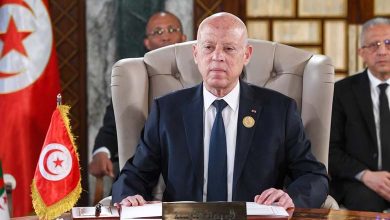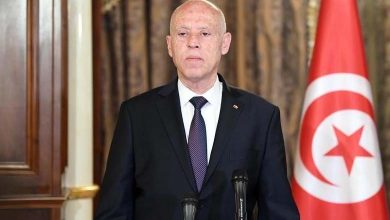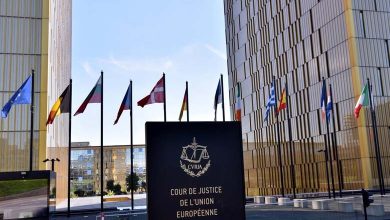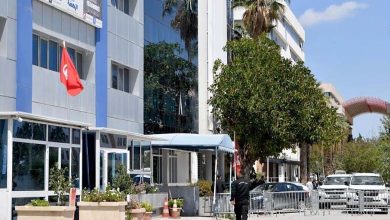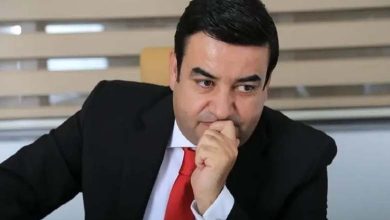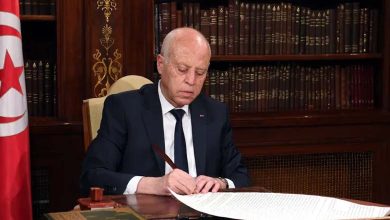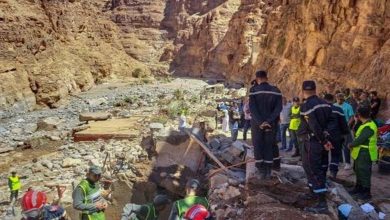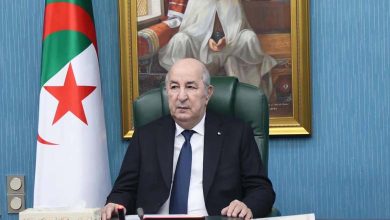One year of imprisonment for Ghannouchi on charges of glorifying terrorism
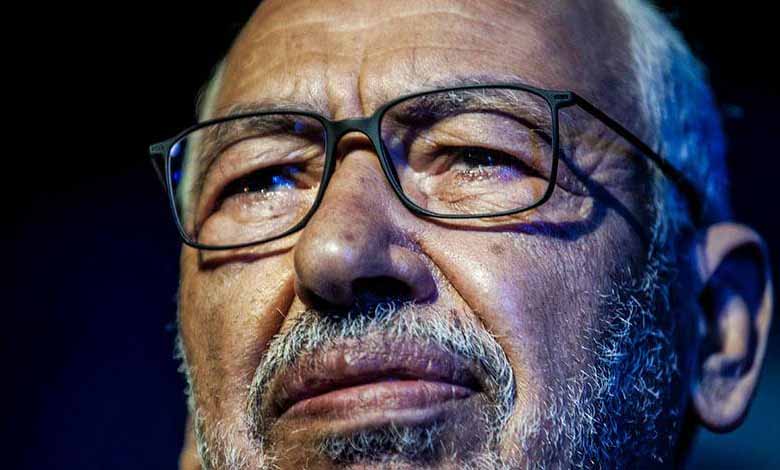
A Tunisian court on Monday sentenced Ennahda leader Rachid Ghannouchi to one year in prison and a fine for glorifying terrorism, according to Samir Dilou, a lawyer and leading member of Ennahda’s defense committee.
Ghannouchi faces a number of issues, including the so-called “Instagramento” file and incitement to violence, after a video of a conversation with leaders of the opposition Salvation Front leaked in which he said that “the exclusion of political Islam in Tunisia is legitimate for a civil war.”
“The terrorism criminal division of the Tunis court of first instance issued a one-year prison sentence with a fine of 1,000 Tunisian dinars ($300) in the case filed by a security union against the head of Ennahda,” Dilou said.
“The case was brought against the background of a complaint filed by the former secretary general of the general secretariat of the National Security Syndicate against Ghannouchi, after a speech he delivered to mourn the death in February 2022 of Farhat al-Ghabar, a member of the Ennahda Movement in Tataouine Province (south), who was deemed to have incited violence against security personnel,” he said.
Ennahda denounced the ruling as an “unjust political judgment,” while the opposition National Salvation Front said that “no one in the opposition is immune from having his freedom confiscated.”
In a statement on Monday night, Ennahdha denounced the sentence issued against Ghannouchi as an unjust political judgment and called for his immediate release.
“The prison sentence against the movement’s president, Rached al-Ghannouchi, came after he paid tribute to a journalist and mentioned his representatives in the fight against tyranny and the struggle for freedom and dignity,” it said.
Ghannouchi had “anti-extremism and anti-terrorism statements and writings, a call for moderation and centrism, and his long struggle for freedom and national unity”, the statement said.
The opposition National Salvation Front commented on the verdict against Ghannouchi, saying, “No one in the opposition, regardless of his position or affiliation, is immune from confiscating his freedom and imprisoning him.”
The Front stated in a statement, “The imprisonment of one of the most prominent political figures because of statements whose interpretation is contrary to their utterance and meaning proves that the authority has not been able to prove any criminal material acts against the head of the Ennahdha movement and all the arrested politicians.”
On December 29, 2022, the hearing of Ghannouchi in this case was postponed, then he was kept in a state of release on February 21, 2023, and Ennahdha considered at the time that “listening to Ghannouchi comes on the basis of falsely and slander accusing him of calling the security forces a tyrant.” .
The terrorists use the word “tyrant” to describe the security and military elements and their bloodshed.
On April 17, Ghannouchi was arrested by Tunisian security forces after a raid on his home, before the Tunis Court of First Instance ordered him to be imprisoned for “statements attributed to incitement to state security.”
After the arrest, Ennahdha’s offices were closed in several states and the central headquarters in the Montpellier area of the capital Tunis was inspected.
Ghannouchi is one of the most prominent leaders of the Salvation Front, an opposition group to extraordinary measures that has led a number of moves and whose prominent faces have been arrested in the conspiracy case.
Security forces have arrested several prominent Ennahdha leaders such as former justice minister Noureddine Bhiri, former interior minister Ali Laarayedh, and others such as Sahbi Atigue and Sayyed Al-Ferjani.
Since February 11, the Tunisian authorities have carried out a campaign of arrests of leaders and activists in the opposition, which considers the exceptional measures “a coup against the constitution of the revolution (the 2014 constitution). Ennahdha and the rest of the opposition forces usually deny the validity of the accusations against their leaders and consider them political prosecutions, while Said accused detainees of “conspiring against the security of the state.”



